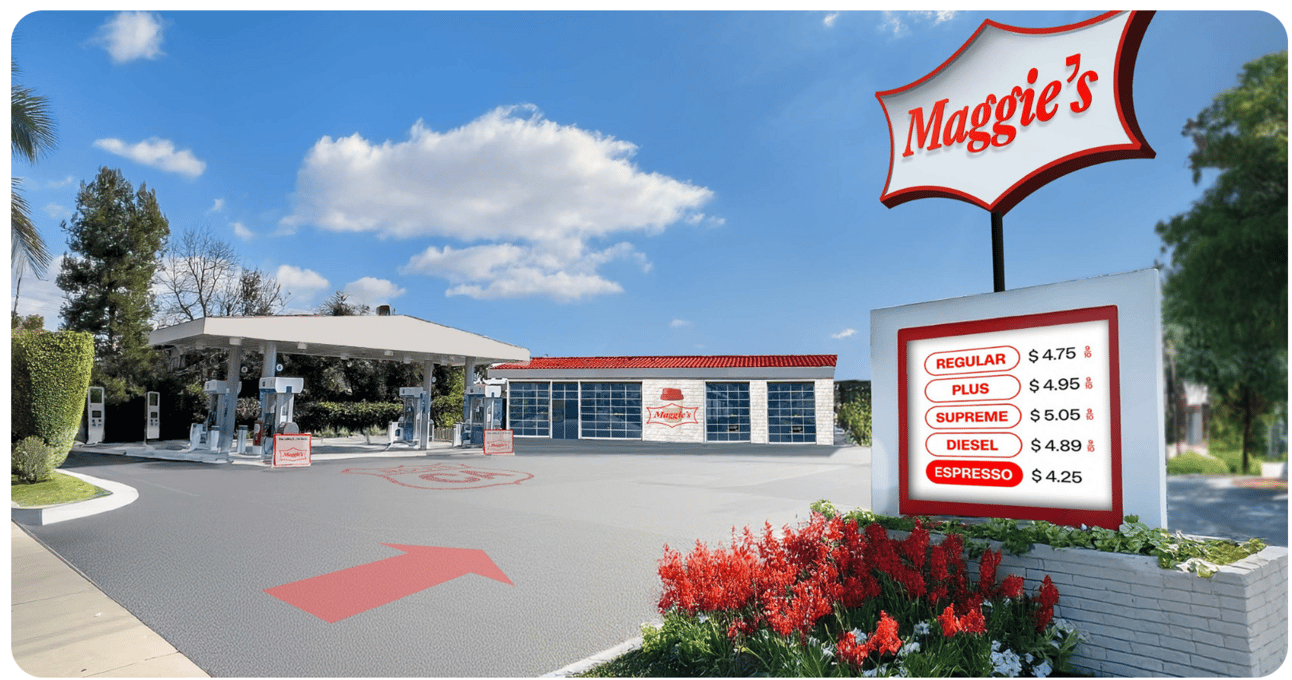
Issue #46: Takeaways From The SMB World
I hope you enjoyed the deep dive last week on PopUp Bagels. I really enjoyed writing it, and you may start to see some similar style pieces on other companies in the future. Appreciate all feedback as always, and don’t forget to toss a reply if you have any thoughts on that issue or similar formats! Before we dive into this week, a couple of polls!
How would you rate the PopUp Bagels Piece (Issue #45)?
Do you want more earlier stage company deep dives?

Run of show from the SMB summit
This week, I had the pleasure of attending the SMB Summit, hosted by Yoni Rechtman and Ariana Song from Slow Ventures. In the room were people from all different parts of the industry, all united in discussing what the future of Small and Medium retail businesses would look like. I had many interesting conversations, as well as interesting learnings, but wanted to coalesce three takeaways to share.
Takeaway #1: Evolving Ownership Models
Businesses have typically had a couple of ownership models throughout history, with little innovation in the space, but that seems to be changing. On the one hand, employees want to be more involved in the business. They want to be owners and aligned with the bigger picture. Typically, in the tech industry, that is commonplace. Almost all tech startups set aside 5-10%, or more, of their stock to be given to companies. At large public companies on the stock market, employees often get stock as well. Outside of that, employees are not getting ownership, like in the retail world, for your average multi-unit chain that isn’t massive. That is all changing, as part of businesses changing hands from Baby Boomers to other generations, employees are also getting involved to take over ownership. One company in the space to monitor is Teamshares.
The other ownership model that is becoming more popular is franchising. This model has been around for a while, albeit under the radar to me, outside the restaurants everyone knows as franchising, like PopUp Bagels and McDonald’s. I had incorrectly assumed only restaurants do franchising, when in fact most of the chain businesses you know are probably franchises. For startup retailers, this is a great way to grow. First, you develop a model, playbook, tech, etc. in 3-10 units and nail the concept. Now, instead of having to raise a ton of capital to expand, you can partner with others to leverage their capital, while still making a profit. I strongly believe this model will become more commonplace with startup retailers outside the typical restaurant space. One interesting company to follow in the space is Area2Farms, which is building franchising in the farming space. I also am very bullish on franchise experiences - if you have any favorites, send them over!
Takeaway #2: AI in Retail/SMB - A Long Way to Go
Like many conversations across industries these days, the topic of AI quickly came up. There was a clear consensus that there are specific use cases with AI can help improve businesses, but overall, it has a long way to go and may never fully reach the level people expect. Here are a couple of the highlighted use cases:
Chatbot usage helps augment day-to-day tasks (e.g. ChatGPT)
AI makes engineers more productive
AI tools make manual tasks in Finance, Accounting, and Legal more efficient, but augment people, not fully replace them
Notice that not much was mentioned in terms of the actual service and operations of retail. That is because it is really hard to replace those with software, let alone AI. For that is the special sauce of retail, the actual physical four walls. Which leads me to the final takeaway…
Takeaway #3: Physical vs Digital, Bits vs Atoms
Retail is not a business that can be abstracted from the four walls. Sure, eCommerce and ghost kitchens, as well as other innovations, have offered alternatives to the retail experience, but at the end of the day, the core retail remains the same. That is why the difference in the previous takeaway compared to other industries is stark in terms of what AI can actually do. That is because retail is such a physical world where you are working with atoms (people), not bits (software). That doesn’t mean software can’t augment existing processes, it is just slightly nuanced. The key here is that regardless of whatever the software is doing, the people and processes need to be tight already, otherwise, it won’t work. Retailers should still be utilizing software, but only after processes and people are tight.

I’m Donut? Donut plus the line
I’m Donut? Launched NYC Location
Times Square, in New York City, is no stranger to long lines and crowds. While there is plenty of retail in the area, the crowds are typically there for the experience, not as much the actual store. Well, that seems to have changed, with the opening this week of I’m Donut?, a Japanese donut shop. This location makes the 5th location of the chain, and the first outside Japan. These are special donuts - pushing the bounds of what you would think of a donut typically by featuring many savory flavors in addition to classic sweet flavors. The store is also pretty large, almost 6000 square feet, which is different from the typical smaller bakery space. This large space is intentionally designed so that customers can sit and see the production process. I am personally very excited to try the products, even if it means waiting for a while in line. It will also be interesting to see how this relatively small chain grows in the US market. Maybe a potential candidate for franchising?
Flow Raises Additional Funding
Adam Neumann, the founder of co-working space company WeWork, had a vision for how the future of work and living was shifting. While trying to implement with WeWork, it didn’t really end up working as they were ahead of the time and never fully had product-market fit at scale. Plus, throw in a major pandemic which shifted the way people work, that you never could have predicted, WeWork had a tumultuous journey culminating in a down valuation sale. Still, Neumann was steadfast in his vision, that co-working and coliving were the future, so he founded a new company Flow. This time, he started more on the living side, which makes sense given how the paradigm has shifted. However, despite billing itself as a startup, Flow is really just a real estate fund when it comes down to it. Despite that contradiction, that hasn’t stopped Neumann from getting some major investors on board, like a16z, which was involved in WeWork. This week, it was announced Flow has secured over $100M in additional capital and doubled its valuation to $2.5B. This move has definitely raised eyebrows given the past issues, plus an uncertainty around the actual progress Flow has made. I love the concept, and there is definitely a place for innovation in the space, but it just doesn’t seem to be driven by Flow. I hope I am wrong, but I think some fresh ideas are needed to propel the space forward.
Walmart Continues On C-Store and Gas Push
If you go to a Costco, it almost always has a gas station that is packed to the gills with people filling up their cars. The great value of the way Costco prices its gas is super appealing to the customer. Costco’s gas is so popular that the fuel sold by its gas stations in 2023 represented 13% of the net sales. It also helps drive traffic to the stores, by giving customers another reason to stop by, and once they are there, it is very easy to hop into the warehouse club to by some other products. In contrast, if you go to a Walmart over the past few years, chances are there was not a Walmart gas station. Historically, Walmart had a partnership with Murphy USA to operate gas stations and convenience stores by the Walmart locations, but not necessarily right on the property like Costco. Walmart had expressed not being interested in operating the gas stations and doing the whole gas business. However, like many things at Walmart, eventually the scale necessitates it, and in this case, having gas stations and convenience stores on the property, branded Walmart, makes too much sense. At the end of 2024, there were 400 locations, and plans were announced to grow that to 450 by the end of 2025. Unlike Costco, the gas stations are accompanied by a traditional convenience store, albeit Walmart-branded and themed, which I think is brilliant. Having that stuff right there is a great way to keep people engaged and get them to buy, without cannibalizing a trip to the superstore part. It will be exciting to follow the rollout and see if Costco responds by creating a similar convenience store.

Mockup of what the store is going to look like
Summary: Maggie’s Refuel is a new generation gas and convenience store featuring gas, EV charging, coffee, beverages, pleasant, clean, food, and a place to hang out while your EV charges.
My Take: Looking at the prior section with Walmart and Costco, gas is clearly an area undergoing innovation, and ripe for disruption. I am very excited to see someone focusing on the retail infrastructure side of gas / c-store. Plus, the founder’s backgrounds are in more the hospitality side, which is great as people now will have to wait longer for their EV charges. Plus, another candidate for franchising?
Founder(s): Alex Canter, Saul Cooperstein, Argu Arkan, Tomas Garibaldi
Funding: $2M from Matchstick Ventures, Muck Capital, and Everywhere Ventures
Number of Locations: 0 (first location opening in 2026)
Social Media Following: Instagram and TikTok just started
Additional Links:
Olipop launches in Costco with a 15-pack (read more here)
Target launches new Private Label brand, Good Little Garden, with an outdoors vibe (read more here)
Jersey Mike’s hires a new CEO after the recent sale - the founder and original, CEO is staying involved (read more here)
Whole Foods announces two more small format daily shop’s will open in NYC in the next two months (read more here)
Stagecoach is outperforming Coachella this far - maybe do to the smaller, more intimate experience? (read more here)
Gopuff launches a new incrementally metric to identify how advertisements are generating incrementally within the sponsored search of the platform (read more here)
McDonald’s is launching Chicken Strips - sound familiar? (read more here)
Starbucks is not really a coffee company, it is really a bank (read more here)
Why is Gen Z shifting away from alcohol? Are they really doing that? (read more here)
Shein and Temu are planning on raising prices (read more here)
Was this forwarded to you? Sign up here.
Have an idea or want to chat? Respond to this email.
Is the email not reaching your inbox? Try this trick.

